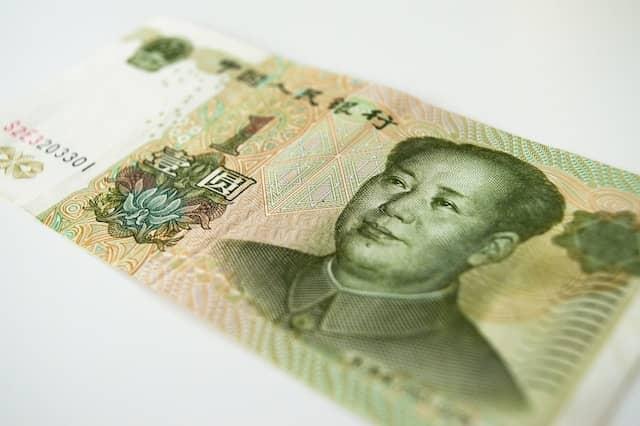Hong Kong's Insurance Boom: Chinese Rush In as Confidence Wavers
SHANGHAI/HONG KONG, July 6 (Reuters) - Chinese investors are flocking to offshore destinations to deposit dollars and purchase insurance in Hong Kong, indicating a lack of confidence in the domestic market and putting additional pressure on the weakening yuan.
The outflows reflect deep concerns about China's economy as its post-pandemic recovery stalls. Consumer spending is sluggish, the property and stock markets are stagnant, and individuals are accumulating cash in savings.
Brokers report that individual investors primarily drive the surge in outflows, and this trend shows no signs of slowing down. Analysts warn that such outflows could further strain the yuan, which is already hovering at an eight-month low.
Since the end of last year, mainland Chinese holdings under a new scheme allowing investment in Hong Kong and Macau wealth products have more than doubled to 814 million yuan ($110 million). In the first quarter of 2023, new premiums collected on Hong Kong insurance policies skyrocketed by 2,686% to $9.6 billion.
Helen Zhao, an insurance broker assisting mainland clients in securing deals in Hong Kong, stated, "More and more people realize they cannot rely solely on the domestic market." She cited Sino-U.S. frictions and pessimism regarding China's economic outlook as motivating factors.
For Chinese investors, Hong Kong insurance has long been a preferred channel for purchasing overseas assets. These policies provide better protection than what's available on the mainland, and associated savings and investment products are primarily denominated in dollars with a global reach.
Insurance companies such as AIA Group, Prudential, and Manulife reported a surge in business, attributing it to mainland investors. A wealth manager at Noah Holdings revealed that he recently facilitated insurance contracts for a group of mainland clients who patiently waited in long queues. The abrupt shift in China's approach to living with the virus, transitioning away from a COVID-19 zero-tolerance policy, left many clients unsettled and pessimistic about the country's economy. The surge in insurance purchases in Hong Kong reflects the gloomy domestic outlook and concerns about an uncertain future.
Savings insurance products in Hong Kong offer a minimum yield of 4.5%, surpassing the 3% offered on the mainland. According to the Bank of China, dollar deposits in Hong Kong provide a hedge against yuan fluctuations and yield 4% for a one-year term. In contrast, one-year dollar deposits on the mainland yield 2.8%, while yuan deposits yield 1.65%.
The attractive returns on these investments are driving the offshore demand. The yield gap between two-year U.S. and Chinese government bonds is at its widest in 16 years, favouring the U.S., and global stocks are rising while China's remain stagnant.
Lawrence Lam, CEO of Prudential Hong Kong, noted that demand for policies denominated in Hong Kong dollars remains low. U.S. dollar-denominated policies are more popular for accessing global asset allocation.
It is important to mention that overall demand remains below pre-COVID levels, and a surge in interest is expected when China's borders reopen, as policy signing requires a visit to Hong Kong.
However, these developments occur as the yuan's stability is increasingly in question. A previous surge of outflows in 2016 led Beijing to tighten capital controls and implement measures to restrict insurance purchases.
The wealth manager at Noah Holdings is concerned that a sustained rush into Hong Kong insurance may invite policy tightening from Beijing. In recent weeks, Chinese authorities have taken steps to bolster the yuan, with state banks selling dollars and the central bank expressing its intention to safeguard against large exchange rate movements.
Hao Hong, chief economist at GROW Investment Group, observes that the outflows coincide with exporters' reluctance to repatriate dollar proceeds, further weighing down on the currency and indicating low confidence in the economy.
Tan Xiaofen, a professor at the School of Economics and Management of Beihang University, suggests that while this situation could potentially lead to a yuan rebound later in the year, caution will likely drive continued individual outflows.
Sami Abouzahr, head of investments and wealth solutions at HSBC in Hong Kong, remarks, "We have observed a shift in the risk attitudes of mainland visitors, who now adopt a more balanced approach to their investments." He adds that while they remain interested in investment opportunities, they increasingly focus on their health and legacy needs through medical and legacy planning insurance solutions.
($1 = 7.2513 Chinese yuan renminbi)











Discussion